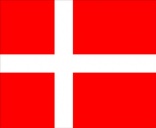Home › magazine › latest news › Danish cleaners as European role models
Danish cleaners as European role models
23rd of March 2015ECJ correspondent in Scandinavia Lotte Printz reports from Denmark where the cleaning staff of a regional hospital are to serve as role models for hospital cleaners in other European countries.
At least once a year the cleaning staff at the Regional Hospital of Randers, Denmark, put down mops and dusters to undergo supplementary training. The hospital’s unique training scheme for cleaning staff has now earned it a place – as the only Danish hospital – in an EU project that aims to develop European standards for hospital staff training.
New technology and how to avoid getting worn out are some areas in which the staff receive training. But the hospital caught EU interest because its staff is also trained in combating MRSA (Methicillin-resistant staphylococcus Aureus).
In Denmark the past four years have seen a steady increase in the number of people carrying MRSA, but MRSA infections are a widespread problem in hospitals all over Europe. Carrying MRSA is usually not serious for healthy people, but it may be for hospitalised people with a weak immune system. As late as December 2014, nine newborn babies from a neonatal unit in a hospital in the Copenhagen area were reported to have been infected.
Little knowledge of cleaning techniques or procedures, hygiene practices, etc increase the risk of MRSA spreading from one ward to another. Thus, proper training is essential and European standards could help reduce the prevalence of MRSA.
Service assistants
Speaking to FOA - a trade union magazine for cleaners - among others, Karsten Kolind, head of service and education in the Regional Hospital of Randers, proudly said that hospital cleaning staff have become highly skilled workers. “Not even the most capable chief physicians can get anything done without them,” as he put it.
But keeping such a high level of training is only possible, Karsten Kolind emphasised, because the hospital employs its own cleaning staff (currently 150 out of a total staff of 1,800). In addition, the hospital has a rotation system where it offers jobs and training to unemployed people who can then step in while the permanent staff are being educated or the hospital is going through a busy patch.
Serving food to patients, giving them a bath or holding their hands if needed, are also tasks the cleaning staff – or service assistants as they are rightly called in Denmark – undertake. One staff member told the magazine that she had even helped out once when a woman was giving birth in the car park. Keeping the hospital at its cleanest is still their main priority, though. But as long as they follow certain practices for proper cleaning, the service assistants organise their own work and make cleaning ‘road maps’ for themselves.
The project in which the hospital is sharing the results that it hopes will impact on others is funded by the EU (290,000 euros) and will run for two years. Two other model hospitals from Finland and France are participating as well as five educational institutions and two privately owned cleaning companies.










